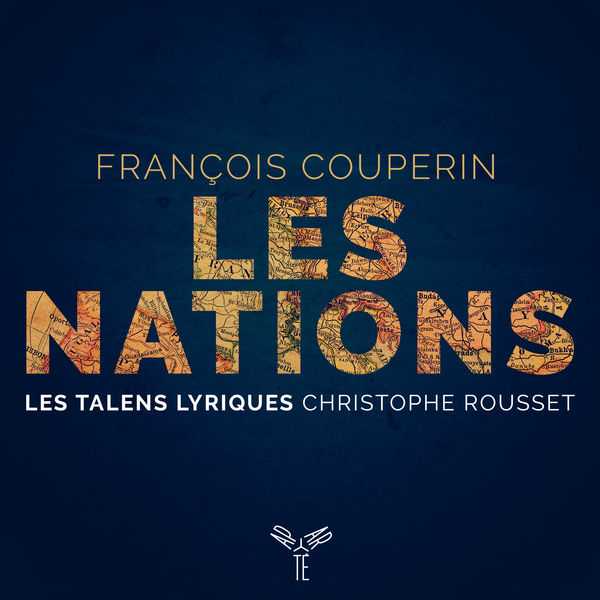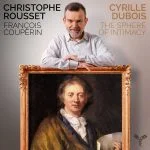

Composer: François Couperin
Orchestra: Les Talens Lyriques
Conductor: Christophe Rousset
Format: FLAC (tracks)
Label: Aparté
Catalogue: AP197
Release: 2019
Size: 1.96 GB
Recovery: +3%
Scan: yes
Les Nations
Premier Ordre, La Française
01. I. Sonade
02. II. Allemande
03. III. Première Courante
04. IV. Seconde Courante
05. V. Sarabande
06. VI. Gigue
07. VII. Chaconne ou passacaille
08. VIII. Gavotte
09. IX. Menuet
Second Ordre, L’Espagnole
10. I. Sonade
11. II. Allemande
12. III. Première Courante
13. IV. Seconde Courante
14. V. Sarabande
15. VI. Gigue lourée
16. VII. Gavotte
17. VIII. Rondeau
18. IX. Bourrée, Double
19. X. Passacaille
Troisième Ordre, L’Impériale
20. I. Sonade
21. II. Allemande
22. III. Première Courante
23. IV. Seconde Courante
24. V. Sarabande
25. VI. Bourrée
26. VII. Gigue
27. VIII. Rondeau
28. IX. Chaconne
29. X. Menuet
Quatrième Ordre, La Piémontaise
30. I. Sonade
31. II. Allemande
32. III. Première Courante
33. IV. Seconde Courante
34. V. Sarabande
35. VI. Rondeau
36. VII. Gigue
Best known today as a composer of harpsichord music, François Couperin remained deeply involved in chamber music. His four inventive trio sonatas and suites entitled Les Nations allege to explore the different musical styles of France and Italy. In fact, each nation’s sonata is more likely Corellian and they’re all flavoured by a freeform virtuosity and elaborate French dance suite.
Probably inspired by Corelli’s pages, whose Trio Sonata Books appeared in the 1680s, Couperin first composed ‘La Pucelle’, ‘La Visionnaire’ and ‘L’Astrée’. They are subsequently entitled ‘La Françoise’, ‘L’Espagnole’, ‘L’Impériale’ and ‘La Piémontoise’.
Despite these solemn titles, Les Nations are made more nimble by a mysterious charm as the French and Italian styles mingle.
As a crowning final of Couperin’s anniversary year, Christophe Rousset and his Talens Lyriques deliver a long-matured version of Les Nations: pure beauty and grace.
The four Nations by François Couperin (also known as “Couperin the Great”) consist of France, Spain, the Empire and Piedmont (Italy, therefore), though it would be rather futile to look for any truly national characteristics in each of the movements of these four suites. And all the more so due to the fact that many of the pieces had already been composed well before the collection’s publication in 1726, and they were simply renamed… Yes, throughout the thirty-six movements of the work we do hear the French style on the one hand and the more Italianising style on the other, but the many interpolations make it, in fact, a kind of mixed European collection. At most, Spain is entitled to a few rare and truly Iberian turns of phrase, even though they are only visible under a microscope. Christophe Rousset and his musical ensemble Les Talens Lyriques approach these “trios” with joy and respect, knowing that the term “trio” does not necessarily imply three musicians; in fact, the melodic parts are entrusted to two oboes, two flutes and two violins, both together and alternately, while the continuo is played by the bassoon, harpsichord, gamba and theorbo, again either together or in various combinations depending on the musical texture. In this way, the thirty-six movements demonstrate the immense musical richness of these various nations, with all the diversity and contrasts that Couperin has assigned to them.



